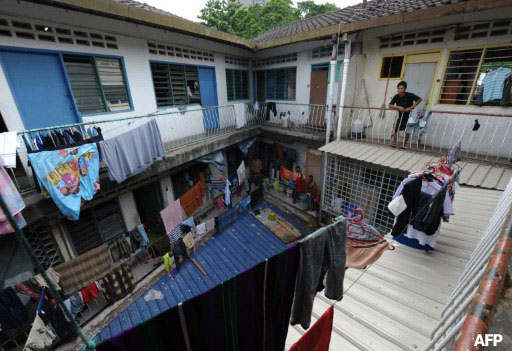New Delhi (Mizzima) – The ASEAN Inter-Parliamentary Myanmar Caucus (AIPMC) has issued a statement urging Burma and Malaysia to delay a detainee swap deal between the two countries over fears for the safety of those sent back to Burma.
 AIPMC clarified their concerns in a statement issued on Thursday, with the grouping of ASEAN legislators explaining that Burmese citizens fled to Malaysia owing to various human rights violations occurring in their home country.
AIPMC clarified their concerns in a statement issued on Thursday, with the grouping of ASEAN legislators explaining that Burmese citizens fled to Malaysia owing to various human rights violations occurring in their home country.
“We call on the authorities concerned to delay the swap deal until Burma has a system to protect refugees and asylum seekers from being tortured by Burmese authorities,” the statement said.
Malaysian NGO Suaram contends the program is forcing Burmese citizens to return somewhere "where their life could be in danger."
Henry from the Chin Refugee Committee told Mizzima, “If those people are sent back to Burma it’s sure that they will encounter problems. We cannot guess about the current attitude of the government regarding their security. So, we cannot heartily agree [to the swap] because we don’t believe in our government.”
"The Malaysian government is giving greater recognition to the undemocratic and tyrannical government in this region," furthered Suaram.
However, Malaysian Home Affairs Minister Datuk Seri Hishammuddin Hussein told reporters on Tuesday that Burmese political refugees and asylum seekers would not be included in the 1,000 Burmese detainees to be sent back to Burma.
Burma Campaign–Malaysia estimates that 3,000 Burmese illegally in Malaysia are being detained in 13 camps across the country.
According to Henry, those detained include about 200 Chin, many of whom will be included in the swap.
“There are UNHCR card holders, non-holders and people whose passports expired. Some people have UNHCR cards. But they don’t know whether they will be sent back to Burma or not. If the authorities send all people back they will also be included in the swap program,” Henry said.
Henry added that it is difficult to make inquires at detainee camps and that detainees are frequently transferred between camps.
It is still unclear who would bear the transportation costs for the return of any detainees.
There are 500,000 Burmese in Malaysia, the second largest immigrant population in the country. Most Burmese in Malaysia are either Chin or Karen.


